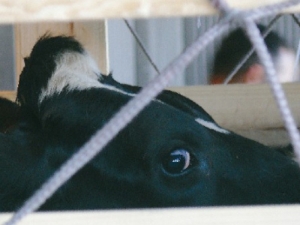DairyNZ opens applications for associate director role
DairyNZ is giving New Zealand farmers a unique opportunity to gain hands-on governance and leadership experience within the dairy sector.
 MPI has already amended the Animal Welfare Act and now the National Animal Welfare Advisory Council is working through regulations that come out of that and details on minimum standards.
MPI has already amended the Animal Welfare Act and now the National Animal Welfare Advisory Council is working through regulations that come out of that and details on minimum standards.
Deciding which proposed animal welfare standards will become regulation and which will become 'guidance' is a priority concern for DairyNZ.
This is the message from Carol Barnao, general manager policy and advocacy.
MPI has already amended the Animal Welfare Act and now the National Animal Welfare Advisory Council is working through regulations that come out of that and details on minimum standards.
"The question is what needs to be in regulation and what can be in guidance," says Barnao.
"So the issue for us and dairy farmers is... what is the difference between the old system and what they are proposing right now?"
The "devil is in the detail", she says. They are looking at how practical the regulations are and testing proposals with farmers, and will go back to MPI with their views by the May 19 deadline.
Barnao believes the changes to the act, and now the regulations that come out of that, is a modernising strategy by the Government.
NZPork chairman Ian Carter says in general they support the proposals by MPI and respect requirements for farrowing and crate sizes. Farmers need to adapt to the size of their pigs. "That is well documented in the industry and we respect that."
NZPork is concerned about a proposal to bring back 'manipulative materials' such as straw. They have been breeding their animals for 50 generations (one year = one generation) without manipulative materials. Pigs are provided with a warm environment and specialist facilities for the piglets. They meet all the nesting behaviour needs, providing for them more hygienically than does straw.
Just as people want modern technology in their own lives, farming cannot go back to what it was hundreds of years ago, Carter says. New technologies have been developed as they gained more understanding of their animals, environmental and OSH requirements and the consumer.
The pork industry has invested considerably and developed special techniques and facilities for the breeding sow and the survival of her piglets. Safety is paramount, similar to the reasons humans have developed maternity hospitals.
The World Wide Sires National All Day Breeds Best Youth Camp Best All Rounder plaudit has become family affair, with 2026 Paramount Cup winner Holly Williams following in her sister Zara's footsteps.
DairyNZ is giving New Zealand farmers a unique opportunity to gain hands-on governance and leadership experience within the dairy sector.
Herd improvement company LIC has posted a 5.2% lift in half-year revenue, thanks to increasing demand for genetics.
According to the latest Fresh Produce Trend Report from United Fresh, 2026 will be a year where fruit and vegetables are shaped by cost pressures, rapid digital adoption, and a renewed focus on wellbeing at home.
The Roar is a highlight of the game hunting calendar in New Zealand, with thousands of hunters set to head for the hills to hunt male stags during March and April.
OPINION: The past few weeks have been tough on farms across the North Island: floods and storms have caused damage and disruption to families and businesses.

OPINION: Meanwhile, red blooded Northland politician Matua Shane Jones has provided one of the most telling quotes of the year…
OPINION: This old mutt has been around for a few years now and it seems these ‘once in 100-year’ weather…